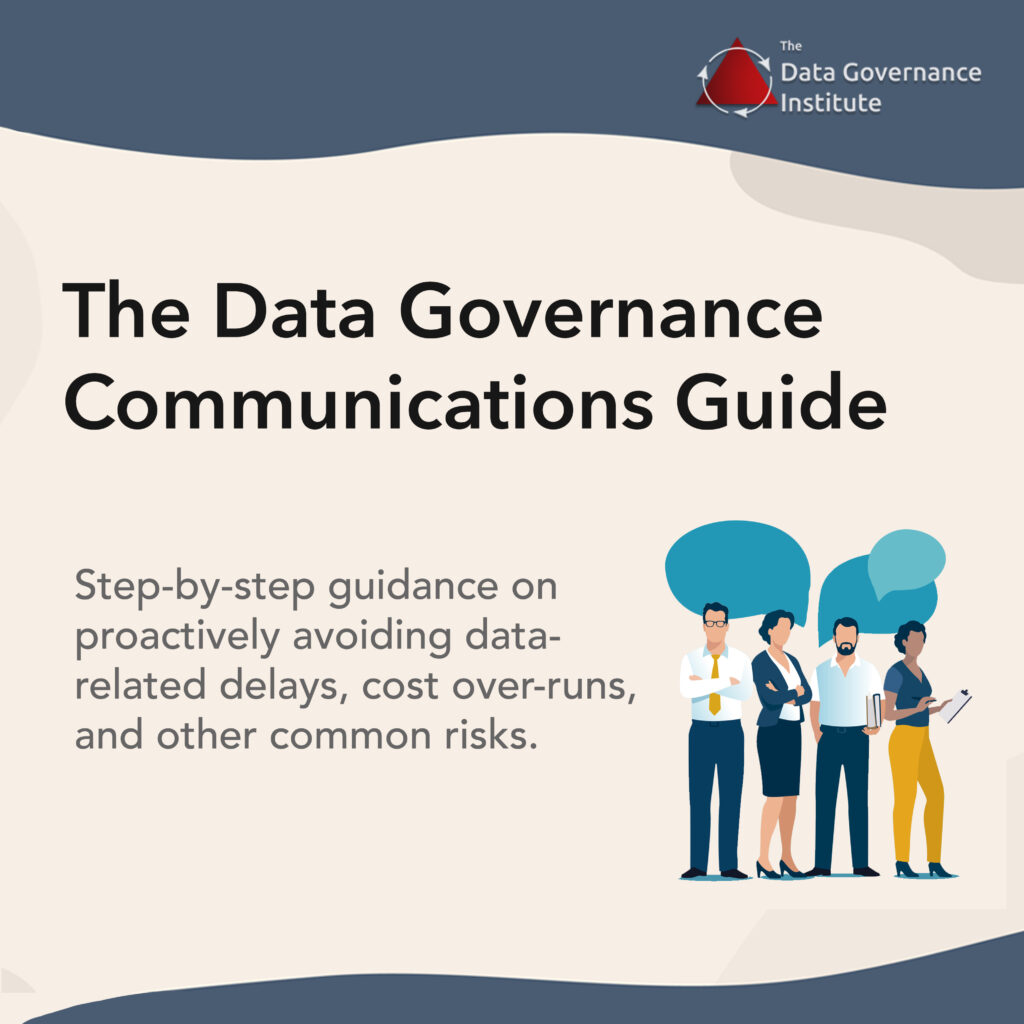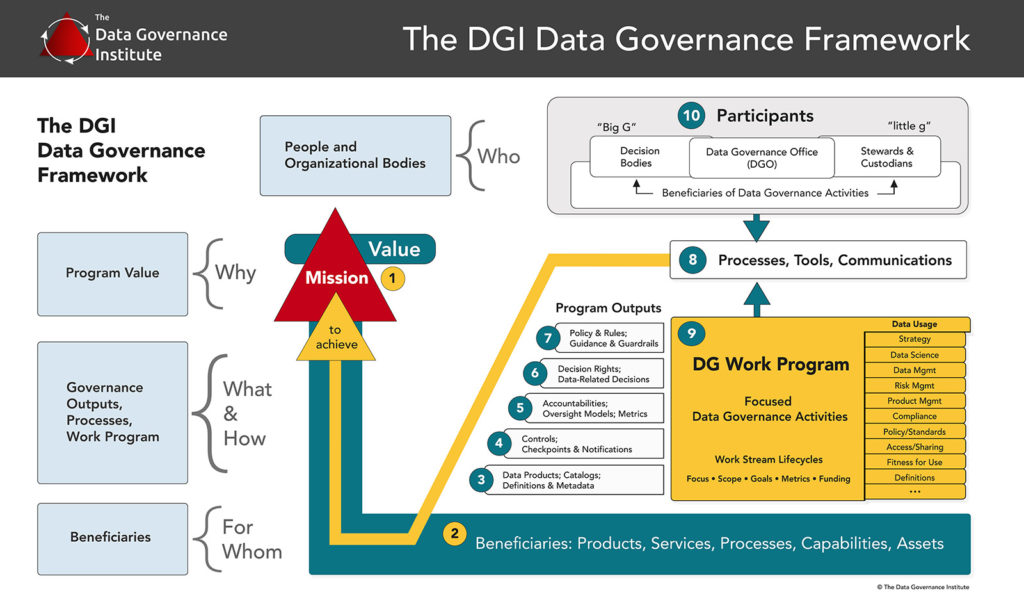Goals and Principles for Data Governance
Typical universal goals of a Data Governance Program:
- Enable better decision-making
- Reduce operational friction
- Protect the needs of data stakeholders
- Train management and staff to adopt common approaches to data issues
- Build standard, repeatable processes
- Reduce costs and increase effectiveness through coordination of efforts
- Ensure transparency of processes

You probably have other goals, depending on the focus of your program. Some of these goals will address your general infrastructure and culture, such as identifying data stakeholders and their specific value propositions for solving data-related issues. Others may be very specific, such as including the business in validating a certain percentage of core business data definitions.
A word of caution: Manage expectations and goals carefully. While it may be realistic to identify stakeholders for an issue examined by a Data Governance team, your resources may not able to conduct a comprehensive analysis of the issue, to analyze associated processes and technology, or to recommend solutions. If your program is dependent on resources from other groups to perform activities that your group is merely facilitating or monitoring, be clear about that.
Universal Data Governance Principles:
Here are Data Governance Guiding Principles from the Data Governance Institute. These principles are imbued in all successful Data Governance and Stewardship programs, processes, and projects. They are the principles that help stakeholders come together to resolve the types of data-related conflicts that are inherent in every organization.
1. Integrity
Data Governance participants will practice integrity with their dealings with each other; they will be truthful and forthcoming when discussing drivers, constraints, options, and impacts for data-related decisions.
2. Transparency
Data Governance and Stewardship processes will exhibit transparency; it should be clear to all participants and auditors how and when data-related decisions and controls were introduced into the processes.
3. Auditability
Data-related decisions, processes, and controls subject to Data Governance will be auditable; they will be accompanied by documentation to support compliance-based and operational auditing requirements.
4. Accountability
Data Governance will define accountabilities for cross-functional data-related decisions, processes, and controls.
5. Stewardship
Data Governance will define accountabilities for stewardship activities that are the responsibilities of individual contributors, as well as accountabilities for groups of Data Stewards.
6. Checks-and-Balances
Data Governance will define accountabilities in a manner that introduces checks-and-balances between business and technology teams as well as between those who create/collect information, those who manage it, those who use it, and those who introduce standards and compliance requirements.
7. Standardization
Data Governance will introduce and support standardization of enterprise data.
8. Change Management
Data Governance will support proactive and reactive Change Management activities for reference data values and the structure/use of master data and metadata.



